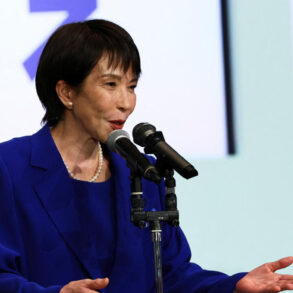In a significant development, Columbia University has agreed to pay $200 million to the federal government to reinstate most of the funding cut by the Trump administration earlier this year. The decision comes after months of tension and scrutiny, marking a pivotal moment for the prestigious Ivy League institution.
In March 2025, the Trump administration announced it was canceling $400 million in grants to Columbia, accusing the university of failing to address what it called “persistent harassment of Jewish students.” The move was part of a broader campaign targeting universities over their handling of student protests related to the war in Gaza, which some Republican lawmakers labeled as antisemitic. Columbia faced intense pressure to comply with a list of demands from the administration, a move critics viewed as the private university bending to federal demands.
On July 23, 2025, Columbia announced it had reached an agreement with the government, described by acting university President Claire Shipman as “an important step forward after a period of sustained federal scrutiny and institutional uncertainty.” Under the deal, the majority of the terminated or paused federal grants, including those from the National Institutes of Health and the Department of Health and Human Services, will be reinstated. The agreement also restores Columbia’s eligibility to apply for new federal research funding and ensures the release of overdue payments on active grants. This is a critical win for Columbia, which relies on billions of dollars in federal grants to support its research and operations.
However, the agreement comes at a cost. Columbia will pay the $200 million settlement over three years and an additional $21 million to resolve investigations by the U.S. Equal Employment Opportunity Commission. While the university does not admit wrongdoing, it acknowledged that Jewish students and faculty have faced “painful, unacceptable incidents” and emphasized that reforms are underway. These include changes to campus safety, discipline, and inclusion policies, which the agreement formalizes. Additionally, a jointly selected independent monitor will oversee Columbia’s compliance with federal anti-discrimination laws, with regular reports on admissions, hiring, and international student policies.
The deal has sparked mixed reactions. President Donald Trump celebrated the agreement on Truth Social, hinting that other universities could face similar scrutiny. “Numerous other Higher Education Institutions that have hurt so many, and been so unfair and unjust, and have wrongly spent federal money, much of it from our government, are upcoming,” he wrote. Meanwhile, Columbia’s decision to settle contrasts with Harvard University, another Ivy League school targeted by the administration, which has chosen to sue over similar funding threats. Harvard’s case remains unresolved.
Columbia’s leaders have made it clear they are committed to addressing campus concerns while restoring financial stability. “This agreement marks a path forward,” Shipman said, emphasizing the university’s focus on rebuilding trust and ensuring an inclusive environment. For students, faculty, and researchers at Columbia, the reinstatement of federal funding is a lifeline, securing the university’s ability to continue its world-class academic and research programs.
As the dust settles, Columbia’s agreement highlights the complex interplay between politics, education, and free speech. While the university navigates these challenges, the broader academic community watches closely, aware that the outcome of such disputes could reshape the landscape of higher education.








